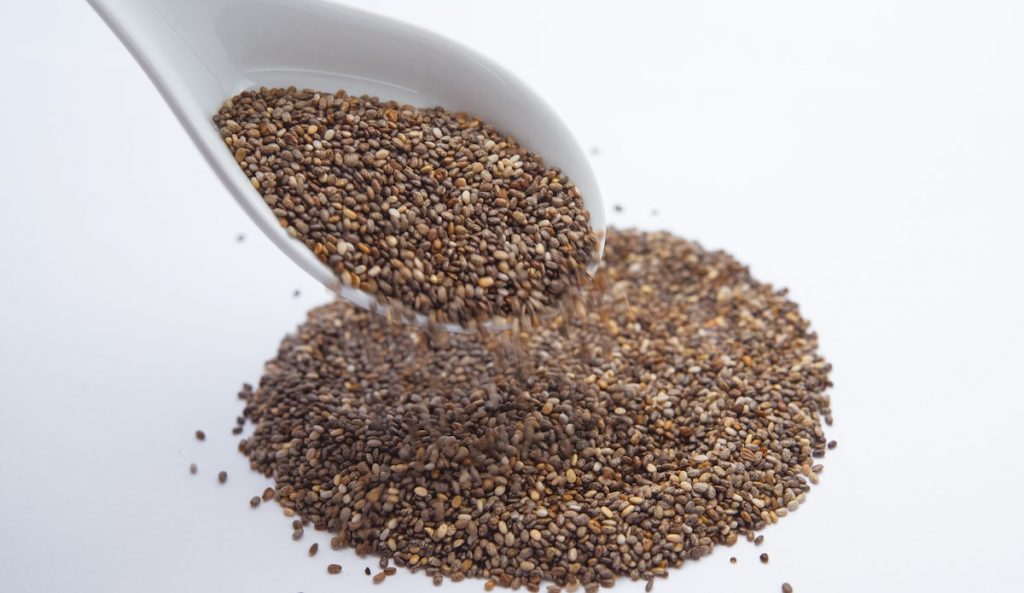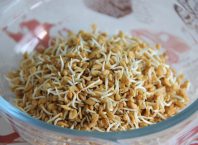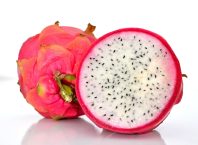Table of Contents
What Are Chia Seeds?
Chia seeds are high in omega-3 fatty acids, which protect the heart. These nutrients lower blood pressure and cholesterol levels and decrease inflammation. Additionally, they contain fiber, which helps minimize the risk of coronary heart disease. In a study from 2021, chia seed consumption reduced high blood pressure in adults with hypertension. In addition, it reduced platelet aggregation, which has been linked to cardiovascular disease.
Chia seeds are easy to incorporate into your diet. You can sprinkle them on yogurt, oatmeal, or other foods. They also thicken sauces and can be mixed into pudding. Just be sure to add plenty of liquid, as too much chia seed can cause constipation and digestive issues.
Chia seeds are rich in soluble fibre, which allows them to absorb up to ten times their weight in water. This type of fibre also slows the digestion of food and helps with weight loss. In addition, they contain 14% of protein, which is an important nutrient for weight loss and muscle building.
Chia seeds offer a list of important nutrients, including:
- fiber
- protein
- manganese
- calcium
- antioxidants
- omega-3 fatty acids
Chia seeds are an excellent source of magnesium. It contains 30 percent of the recommended daily allowance of this mineral, making it an excellent supplement for those who suffer from low energy or chronic fatigue. Additionally, chia seeds are high in manganese, which may help treat a number of diseases. Manganese has excellent antioxidant properties and promotes metabolism. In addition, manganese helps to accelerate wound healing.

Nutrition Facts of Chia Seeds
Chia seeds come from the salvia hispanica plant and are a rich source of omega-3 fatty acids. They also contain antioxidants, fiber, and protein. They are considered a whole-grain food and are easily absorbed by the body. This makes them ideal for a healthy diet and an excellent energy booster.
Chia seeds are rich in omega-3 fatty acids and may help reduce the risk of certain cancers and heart disease. However, too much omega-3 may thin the blood, and only people on blood-thinning medication should consume chia seeds in moderation. Similarly, people on blood sugar medication should avoid eating too many chia seeds.
One tablespoon of chia seeds provides about five grams of fiber. The recommended daily fiber intake is 25-38 grams. However, it is best to avoid eating chia seeds on an empty stomach. This will help you to avoid constipation, which is a common side effect of chia seeds.
Chia seeds also contain high levels of calcium, phosphorus, and magnesium. These minerals are important for maintaining healthy bones. It is also important to remember that the seeds are high in protein. In addition, they are a good source of fibre. A high-fiber diet will increase the body’s absorption of nutrients.
Chia seeds also contain a high amount of omega-3 fatty acids. This nutrient is known to help prevent obesity and lower the rate of fat storage. They also reduce sugar cravings and improve your energy levels. Chia seeds are also rich in leptin, a hormone that helps you control your appetite.
According to the U.S. Department of Agriculture, one ounce (about 28 grams) of dried chia seeds contains approximately:
- 137 calories
- 12.3 grams carbohydrates
- 4.4 grams protein
- 8.6 grams fat
- 10.6 grams dietary fiber
- 0.6 milligram manganese (30 percent DV)
- 265 milligrams phosphorus (27 percent DV)
- 177 milligrams calcium (18 percent DV)
- 1 milligram zinc (7 percent DV)
- 0.1 milligram copper (3 percent DV)
- 44.8 milligrams potassium (1 percent DV)
Origin of Chia Seeds
Chia seeds are an edible seed derived from Salvia hispanica, a plant native to the desert region of Mexico. They are rich in omega-3 fatty acids and have other health benefits, too. In addition to being high in fiber and protein, chia is also rich in iron, calcium, magnesium, zinc, and phosphorus.
Chia seeds were first used in pre-Columbian times by the Aztecs and were an important staple in the diets of Mesoamericans. Today, they are cultivated on a small scale in their ancestral homeland of central Mexico and Guatemala, and they are grown commercially throughout Central and South America. Chia seeds are not only consumed for their health benefits, but they are also used in making nutritious drinks.
The origin of chia seeds is disputed, but there is evidence that they have been used in the Americas as far back as 5500 B.C. They are native to Central and South America, where they were once used in salads and baked goods. Mayan people believed that the seeds had supernatural powers.
Chia seeds have long been valued as a superfood, and their origins are fascinating. The Mayans and Aztecs were the first people to consume chia seeds, and they used them in religious ceremonies. These ancient peoples ate chia seeds as a nutritious staple in their diets and believed that they were gods. They also ground them into flour and extracted the oil from the seeds. The seeds were also used as medicines and a source of energy.
Chia Vs Flax Vs Hemp
When it comes to superfoods, chia vs flax vs hemp seeds are a match made in heaven. They provide added omega-3 fatty acids, fibre, and vitamins. These super seeds are becoming increasingly popular in the diet and are being touted as an excellent alternative to fish oil. However, there are a few differences between the three.
Hemp seeds contain more protein, fiber, and vitamins than Flax or Chia seeds. They also contain three times as many omega-6 fatty acids. Although each of these seeds is rich in protein and fat, the difference between them is significant. Hemp seeds are better for people who suffer from diabetes, as they contain more vitamin E and C than flax.
The biggest difference between flax and hemp seeds lies in their cost. Hemp is much more expensive than flaxseed, which can be purchased for as little as $1.99 a pound. Hemp costs $12/lb, and chia costs about $10. In addition to the price, hemp and flaxseed have different tastes. Flaxseeds have a more grassy flavor and hemp has a slightly nuttier taste.
Both flaxseeds and hemp seeds are a good source of omega-3 fatty acids, which reduce inflammation and prevent chronic disease. Flaxseeds are also rich in lignans, which are antioxidants that protect against cancer. While flaxseeds can be bought whole, hemp seeds must be ground before consumption in order to get the benefits of all the nutrients.
Benefits of eating chia seeds
1. How do Chia Seeds Support Healthy Skin?
Chia Seeds are rich in omega-3 fatty acids, which are essential for healthy skin. They help to build the skin’s barrier and help retain moisture. Therefore, it’s crucial to include them in your skincare regime. The oil they produce is also highly beneficial to the skin. It can improve dryness and reduce the appearance of fine lines and wrinkles.
Chia seeds are also rich in antioxidants, which can reduce the appearance of signs of aging. They also boost skin elasticity. They can be consumed or blended into a face mask. You can also apply them to your skin to get a rich dose of antioxidants and vitamins.
Chia seeds are also rich in fiber, which is essential for your digestive system. They can help maintain normal blood sugar levels. They help fight the development of type 2 diabetes and insulin resistance. Their fiber content can help reduce the amount of spikes and crashes in blood sugar levels. In addition, chia seeds are often used by athletes as a carbohydrate source to maximize glycogen stores, which improve exercise performance and endurance.
Chia seeds are also known for their anti-inflammatory properties. They contain omega 3 fatty acids, which combat inflammation and inhibit the pro-inflammatory C-reactive protein. They also improve the skin’s barrier and reduce wrinkles.
2. Chia Seeds Promote Digestive Health
Chia seeds are an excellent source of soluble and insoluble fibre, which both work to promote digestive health. Insoluble fiber adds bulk to stools and speeds up bowel movements, while soluble fiber absorbs water in the digestive tract and forms a gel that slows down the digestion process. Therefore, chia seeds are ideal for those suffering from constipation or leaky gut syndrome. Many people do not realize how important dietary fibre is for digestive health.
Chia seeds can be easily added to foods and drinks. They don’t need to be ground, and you can sprinkle them on top of a smoothie or baked good. Their mild flavor means they won’t change the flavor of your food. However, if you are unsure of how much chia seeds should be added to your diet, consult your doctor before increasing your intake.
Chia seeds are also an excellent source of essential nutrients for heart health. They contain the powerful antioxidant quercetin, which may offer protection from cardiovascular disease. Also, they contain an abundance of omega-3 fatty acids, which are an essential component of heart-healthy diets. Additionally, they contain both soluble and insoluble fiber, which may support cholesterol levels and improve cardiovascular health.
Despite the high fiber content of chia seeds, it is possible to consume them in moderate amounts and without any harmful side effects. However, excessive amounts of soluble fibre can cause constipation and diarrhea.
3. How Chia Seeds Improve Heart Health?
Chia seeds are rich in polyphenols, a type of antioxidant, which play a critical role in heart health. These compounds have a powerful anti-inflammatory effect, preventing free radicals from damaging the artery walls. Furthermore, they provide essential nutrients such as omega-3 fatty acids, which can improve the condition of the heart and prevent heart disease.
Studies have shown that chia seeds can help lower blood cholesterol. They contain high levels of fiber and omega-3 fatty acids, which can increase good cholesterol and decrease bad cholesterol. High blood cholesterol is one of the main causes of cardiovascular disease and its serious complications, so it is vital to maintain low levels. Nutritionists recommend consuming chia seeds regularly to improve heart health. Chia seeds also contain soluble and insoluble fiber, which helps the digestive system function properly.
Chia seeds contain a type of omega-3 fatty acid called a-linolenic acid. This fatty acid is converted to eicosapentaenoic acid in the liver. In addition, the soluble fiber in chia seeds helps reduce cholesterol levels in the blood. Furthermore, chia seeds help regulate the blood lipids and maintain the ratio of omega-3 to omega-6 fatty acids, which is essential for maintaining heart health. In addition to this, chia seeds also promote the redistribution of fat in the body.
The oil extracted from chia seeds contains the antioxidant quercetin, which helps reduce the risk of heart disease. This substance helps the heart pump more efficiently, and it reduces the blood pressure. Furthermore, chia seeds are rich in fiber, which improves immunity.
4. How Chia Seeds Balance Blood Sugar?
Eating chia seeds has many health benefits, especially for diabetics. They are high in fibre and help to stabilize blood sugar levels. They also have anti-inflammatory properties. As a result, they have been hailed as a “wonder food” for diabetics.
Chia seeds have been shown to improve cholesterol levels and lower blood pressure. They are also high in magnesium, dietary fiber, and protein. These nutrients are vital for the health of the heart and reduce the risk of heart disease. Researchers also say that chia seeds are beneficial for the heart because they contain heart-healthy omega-3s.
The seeds are very delicate and break apart easily when exposed to moisture. It’s best to eat chia seeds in whole form. They’re digestible and absorbent in their whole form, but you can also grind them for even better absorption. They can be stored for four to five years without refrigeration. Make sure to store them in a cool, dry place.
Chia seeds are high in fiber, which may reduce insulin resistance and improve blood sugar levels. This can reduce the risk of developing type 2 diabetes and metabolic syndrome. In addition to lowering blood sugar levels, they also contain caffeic acid, which fights inflammation. It has been shown to reduce levels of inflammatory markers in the blood and is also useful in reducing the risk of heart disease and cancer.
5. Chia Seeds Boost Energy and Exercise Performance
Chia seeds are an amazing source of energy for those who enjoy a healthy diet and an active lifestyle. This nutrient-rich food is low in calories and contains a high amount of protein and calcium. Additionally, chia seeds have an incredible absorption rate, which means that they provide a longer-lasting feeling of fullness. As a result, chia seeds can boost exercise performance without putting on unwanted weight.
The Dole Nutrition Institute at the National Cancer Research Center sponsored the study. The researchers were led by Nicholas Gillitt, PhD, vice president of nutritional research and institute director. The researchers have previously collaborated on two other chia seed studies. They published their findings in the Journal of Alternative and Complementary Medicine.
Chia seeds are full of fiber and alpha-linolenic acid, which helps to maintain normal blood sugar levels and fights insulin resistance and type 2 diabetes. They also help stabilize blood sugar levels, which are often unstable and lead to cravings for sweets and unhealthy snacks. Athletes often use chia seeds to help boost their endurance and improve their performance.
Chia seeds are small, spherical seeds that come from the Salvia hispanica plant, which grows in Central and South America. They have been used by ancient peoples for centuries and were consumed by the ancient Mayan and Aztec civilizations. The Mayans celebrated the seeds’ ability to give the body energy. They named them chia, which means strength in Mayan.
6. How Chia Seeds Build Stronger Bones?
Chia seeds are a great source of calcium and boron, which are both essential minerals for bone health. They also contain a small amount of magnesium, which is beneficial for your bones. These nutrients make chia seeds an excellent choice for vegans, as well as people who eat a vegetarian diet.
Another benefit of chia seeds is their high protein content. This helps to increase muscle mass and strength. Consuming protein after exercising also helps to reduce muscle damage and speed up the recovery process. Additionally, chia seeds improve bone health by improving bone density. They also help to prevent osteoporosis. In addition to the calcium and magnesium in chia seeds, they also contain a significant amount of manganese.
Chia seeds have a high content of ALA and n-3 fatty acids. This has been studied in different models of disease prevention and musculoskeletal health. The findings of this study are encouraging for future research. Chia seeds are an excellent source of omega-3 fatty acids, which are essential for the health of your bones and your heart.
The researchers found that rats fed with chia seeds had higher bone mineral density than the control group at ten and thirteen months. Interestingly, they had significantly higher bone mineral density in the left tibia. The results were also consistent in rat weight and bone structure.
7. How Chia Seeds Aid in Weight Loss?
Chia seeds are a great supplement for weight loss. They help regulate blood sugar, which in turn helps you lose weight. They are also full of omega-3 fatty acids and antioxidants, which help fight inflammation and heart disease. Chia seeds are a good source of protein.
In addition to eating chia seeds by themselves, you can also mix them in milk for breakfast. You can also use non-dairy milk substitutes, as long as they don’t contain high-calorie sweeteners or toppings. You can also mix chia seeds with fruit to create a nutritious snack or meal. Chia seeds are a great way to sneak omega-3s into your diet.
In addition to their high-quality protein and fiber content, chia seeds can improve your digestive health. They can also aid in weight loss because they help you manage your cravings. This makes them a great substitute for foods with high-calorie content. Plus, they are also full of antioxidants, which will help you feel fuller for longer.
As a bonus, chia seeds are high in fibre, which aids weight loss by increasing satiety. Fiber-rich foods take longer to digest, so you will feel full longer, which may help you avoid overeating. Chia seeds can also help you reach your calorie deficit if combined with mindful eating and regular exercise. However, they should not be your main source of weight loss.
8. Chia Seeds Fight Cancer Growth
Chia Seeds are high in omega-3 fatty acids, which have been shown to help fight cancer growth. A study published in the Journal of Prostaglandins, Leukotrienes and Essential Fatty Acids found that chia seed oil reduced tumor size and prevented metastasis in breast cancer cells.
These seeds also contain a good source of antioxidants, vegetarian protein, and fibre. And they contain powerful anticancer compounds like resveratrol, which is commonly found in red wine. Despite their unappetizing taste, chia seeds are easy to incorporate into a variety of dishes.
Researchers have also found that chia seed oil has a significant anti-proliferative effect. It inhibits the growth of cancer cells and normal cells, and has been shown to be more effective than 5-flu in inhibiting cell growth. In fact, some of the studies have revealed that chia oil reduces the levels of the estrogen receptor in breast tumor cells, which is a key component in cancer.
Chia seeds are a fantastic superfood for your health and have long been known as “runners’ food”. They have been used by the ancient Aztecs to help heal wounds and provide energy for long days. Furthermore, they have proven benefits for your teeth as well. With high levels of calcium and zinc, they keep plaque and tartar at bay. Besides being high in antioxidants, chia seeds also have an anti-microbial effect, which helps in the fight against cancer.
Chia seeds are rich in alpha-linolenic acid, an omega-3 fatty acid that is essential for human health. Studies have found that chia seeds have a protective effect against cervical and breast cancer, and that their intake could decrease the risk of prostate cancer as well.
Risks and Side Effects of Chia Seeds
There are risks associated with consuming large amounts of chia seeds. First, people with inflammatory bowel disease or a history of choking should avoid chia seeds. This is because the seeds absorb liquid quickly, and choking can result. To avoid this, chia seeds should be soaked for at least five minutes before eating. Also, people with digestive problems should avoid consuming chia seeds.
However, chia seeds are a good source of fiber. Just one-half teaspoon of chia seeds contains three-quarters of the daily fiber recommendation. Although chia seeds are a great source of fiber, they should only be consumed as part of a varied diet. In addition, those with gastrointestinal issues should avoid chia seeds, since they can cause chronic inflammation.
Some researchers believe that chia seeds may be helpful in reducing cholesterol and heart disease risk. But, more studies are needed to determine if they’re beneficial for people with these conditions. Also, it’s important to note that these studies were conducted on animals and were not designed for humans.
In addition to being an excellent source of fiber, chia seeds also contain a high concentration of omega-3 fatty acids. These oils can help decrease the cholesterol levels in the blood, increase good HDL cholesterol levels, and fight against inflammation. Studies have shown that chia seeds may also reduce blood triglycerides, a major risk factor for heart disease.















